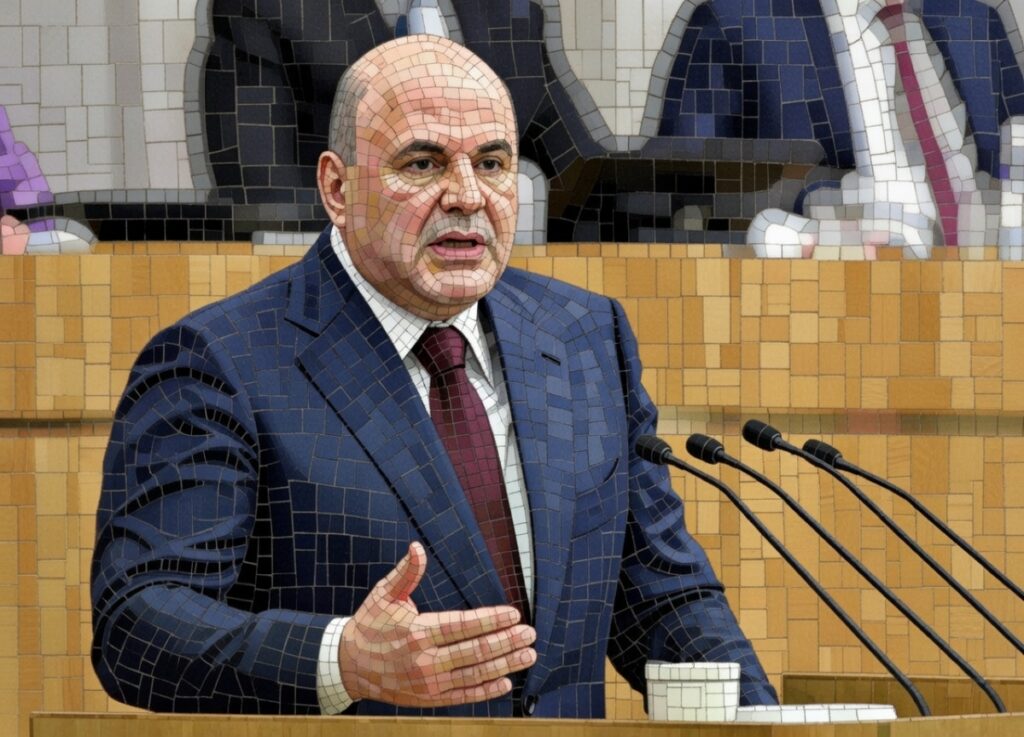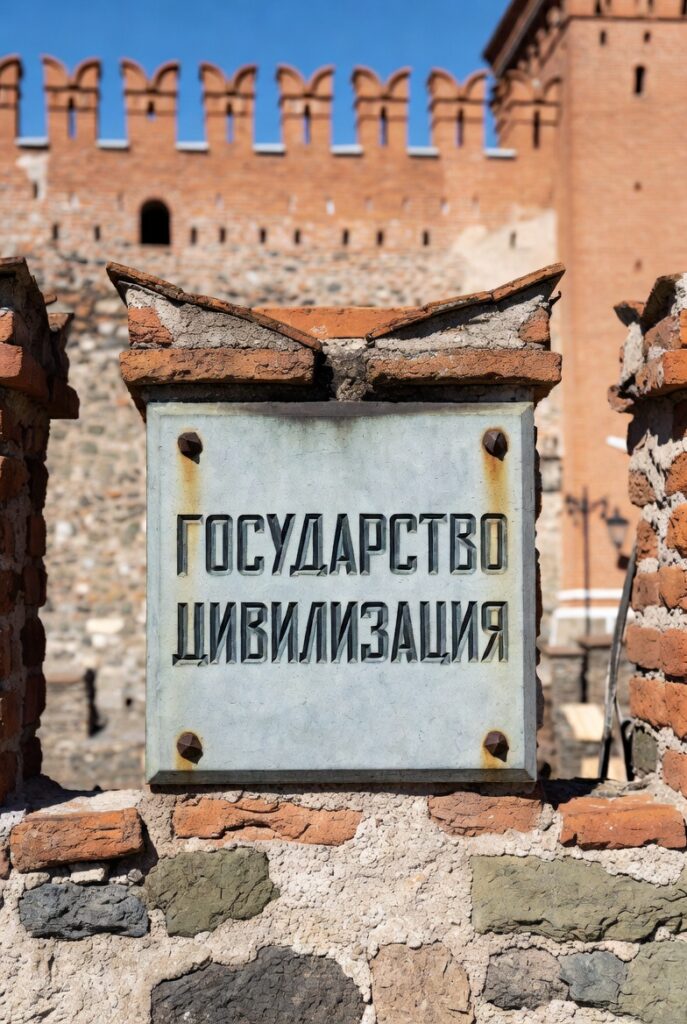The Russian bureaucratic and business elite has been reinvigorated following a phone call between Vladimir Putin and US President Donald Trump. Dmitry Peskov, the press secretary of the Russian President, openly states that the Kremlin is beginning preparations for a meeting between the two leaders. Trump himself has announced that the dialogue will take place in Saudi Arabia. The enthusiasm of the elites, tired of war and, most importantly, the consequences of sanctions, is understandable and predictable — for the «civilian» part of the vertical (bureaucracy and business), Donald Trump looks like an external savior, one worth meeting halfway. Political technologists working with the political block of the Presidential Administration openly speculate about the end of Russia’s «turn to the East.»
The information block of the PA has already legitimized the topic of Trump’s possible visit to Moscow for the 80th anniversary of Victory Day. Dmitry Peskov claims it’s too early to talk about it, but from his elaborate speeches, it’s easy to infer that such wishes clearly exist among the Russian leadership (previously, only insiders reported this). The Kremlin and Vladimir Putin, on whom all Russian politics depends, are not making such a sharp turn for the first time, hoping for quick victories based on the most optimistic scenario. This is how the Russian president started the full-scale war with Ukraine — based on intelligence reports, he believed that the Ukrainian population would joyfully welcome Russian troops, and the Russian army would occupy the entire country in a matter of days or weeks. The decision to invade was evidently almost foolproof for Putin — especially in the context of his irrational project of «returning territories» and gathering the fragments of the former empire. Reality turned out to be different. The same might happen with the prospects of negotiations with Trump. It’s quite possible that they might end with signing an agreement — the Russian economy is struggling, which might force Putin to be more flexible. But the dialogue will clearly be complex. Trump makes gestures towards the Russian leader but immediately clarifies that he won’t let him «win.» Russian propaganda, meanwhile, clearly portrays the started dialogue as Putin’s victory and the fulfillment of his terms. Before the ceasefire, many things could happen — both in favor of Russia and Ukraine — and this should be kept in mind.
However, the hope and optimism of the Russian elites turn out to be stronger than acknowledging the difficulties; the issues are set aside or considered insignificant. But they could significantly complicate — if not completely derail — the prospects for peace negotiations. For example, it is already clear that Donald Trump would not want China to be part of these negotiations. He would prefer the talks to be held in Saudi Arabia, involving his special envoy Steve Witkoff, known for his dealings with Middle Eastern countries. The same area is specialized by Kirill Dmitriev, head of the Russian Direct Investment Fund, who was involved in preparing the release of Mark Vogel, an American teacher detained in Russia. In the polygon of the USA, Russia, Ukraine, and Saudi Arabia, China ends up being the odd one out. Representatives of the PRC try to have their say — proposing to hold the talks in China, but Trump has likely already made his decision. It’s doubtful that the Chinese will accept this role passively. And the Russian side will be responsible for pushing them aside. Dmitry Peskov tries to mitigate this effect and give China hope by explaining that it’s too early to talk about the «contours of negotiations,» but it’s unlikely that these assurances will be seriously considered in China. If the turn to a new friend actually happens, «old friends» like the Chinese are unlikely to appreciate it.
The possible ceasefire is already being condemned by war supporters, who refuse to believe in it. And in the Kremlin, they have little idea how to deal with these people. So far, the «angry patriots» have looked more confused, which suits the political administrators just fine. But for most ultra-patriots, the ongoing war was the goal; if it ends, they would lose themselves, their new identity. The significance of potential protests by war supporters (primarily motivated men who have learned to earn on the front line, and whose earnings would cease in peace) should not be overestimated, but neither should it be underestimated. If these people take to the streets, the anxiety among citizens, which would clearly decrease in the case of a hypothetical peace, would again reach a peak.
Finally, it’s far from certain that the civilian bureaucrats who are now celebrating their victory, will continue to influence Putin. If the Russian army keeps capturing new villages and settlements, this will be a good argument for the military faction — as long as the front is moving, let it move. This might manifest in Putin’s desire to gain control over parts of Zaporizhzhia and Kherson oblasts, which he has mentioned multiple times, potentially leading the negotiations to a deadlock. Lastly, Russian optimists ignore Ukraine, assuming it would submit to any of Trump’s wishes. This is also far from reality.
Kiriyenko on the Outer Edge
Sergei Kiriyenko, head of the Kremlin’s political block, continues his expansion within the power vertical. He has added Abkhazia to his area of oversight, previously managed by Dmitry Kozak, the President’s assistant, and the Security Council. Before this, in 2022, he took on the stewardship of what were then officially not yet annexed DPR and LPR, although for a long time, this direction in the Kremlin was handled by Putin’s aide, Vladislav Surkov. Thus, Kiriyenko gradually subordinates areas that previously fell outside the responsibility of the internal political block he heads. DPR and LPR were considered amorphous territories requiring special attention, primarily from the security forces. However, the full-scale invasion gave Kiriyenko the opportunity to take these regions «under himself» — first under the guise of conducting a referendum, then as annexed territories of the country.
Abkhazia and most of its elites do not plan to join Russia and are not even ready to let it deep into its economic affairs. Indeed, an agreement on preferential conditions for Russian business was the cause of yet another political crisis in the separatist republic last year. This crisis ended with the resignation of the region’s head and local deputies refusing to sign the agreement. Therefore, Abkhazia was supposed to remain on the outer edge, not subject to the internal political block.
However, Kiriyenko took advantage of the confusion, the crisis situation, the weakness of the pro-Kremlin candidate Badri Gunba, and offered his services as a crisis manager now on the outer edge. Moreover, he secured this new direction for himself by making a public appearance. Surkov and Kozak tried not to appear publicly in the territories they oversaw. Sergei Kiriyenko deliberately becomes a news figure to ensure no one can take away what he has claimed. For now, the head of the internal political block’s bet looks risky. Just a week ago, VCIOM forecasted a second round for Abkhazia, predicting 42.3% of the votes for the pro-Kremlin candidate Gunba in the first round. Another sociology company working with the Kremlin, INSOMAR, gave Gunba 41%, with his main opponent, Adgur Ardzinba, at 33%. Ardzinba’s rating was growing. However, on the eve of the elections scheduled for February 15, the same INSOMAR predicted Gunba’s victory in the first round with 54% of the votes. This indicates that Kiriyenko’s political technologists, working for the pro-Kremlin candidate, are ready to secure his victory at any cost, including falsification. This team has already overstepped with shady practices during the elections for the head of the Russian republic of Khakassia in 2018. At that time, Communist Valentin Konovalov was hit with waves of compromising material and fake news, which did not prevent him from winning. Approximately the same tactics are being used by Kiriyenko’s team in Abkhazia — scaring the republic’s residents with the loss of Russian tourists and portraying the opposition candidate Ardzinba as a supporter of the «Turkish agenda».
Obvious falsifications might lead to protests, which have happened in Abkhazia’s history before. Moreover, in 2020, a pro-Kremlin candidate resigned following protests. In such a scenario, Kiriyenko’s Abkhaz project might fail, but the head of the internal political block is playing all or nothing. If he wins in Abkhazia, he can continue his expansion into the outer edge, opening new career prospects for himself.










